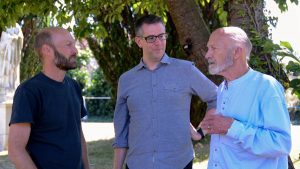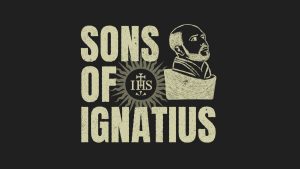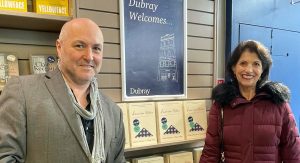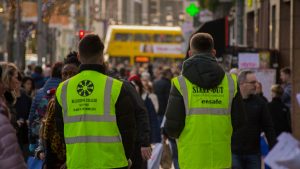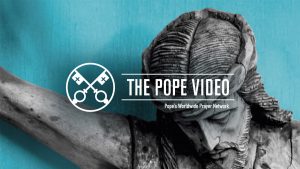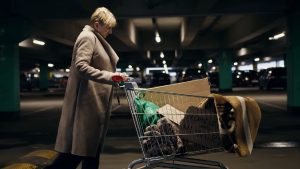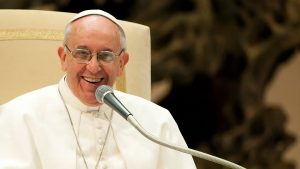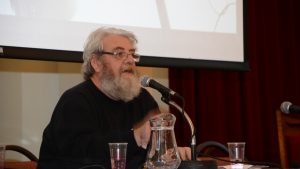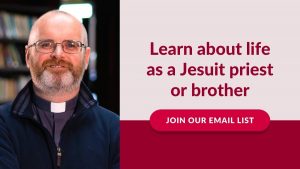Living among the poor, listening to their silence
 Mary Stokes spent a year as a Jesuit volunteer among the socially deprived people of the Ballymun flats in north Dublin. She reflects on the unsung heroes she met there, people who have helped to give a voice to the poor.
Mary Stokes spent a year as a Jesuit volunteer among the socially deprived people of the Ballymun flats in north Dublin. She reflects on the unsung heroes she met there, people who have helped to give a voice to the poor.
Poverty is…on the barren soils of a far away continent…coins in a paper cup on street corner…in an empty school lunchbox. These images are without a soundtrack. Poverty is silence.
This silence goes beyond material emptiness. It extends to the helplessness of a child being bullied, to the stoicism of a woman in a troubled relationship, to an elderly man ashamed of his literacy problems, and to the young man struggling inside with his mental health. Joined through their silence we can see where today’s poverty lies.
The Jesuit Volunteer Communities (JVC) program introduced me to an Irish society that, I could say, I lived parallel to for so long. It was here also that I met some true unsung heroes.
Finishing college I saw a huge question mark looming on the horizon. I heard good things about the program from some people I met through Slí Eile. The program would involve working voluntarily in a social justice project five days a week, including a course on Social Spirituality every Friday morning; living a simple lifestyle; and living with other volunteers in a community and developing an understanding of Ignatian spirituality through participating in retreats and meeting with a spiritual companion.
So I signed up and a few weeks later I moved into a fifth floor flat in Ballymun with four other volunteers, to live in work in the neighborhood for the next ten months.
Spending so much time in this area, I really got to observe how a community has identified its social problems and has strongly united to tackle them. It is a source hope for anyone who despairs about social issues and inequality today.
Being a fulltime volunteer with Sophia Housing Association I worked alongside the outreach family support workers. In working with chaotic families Sophia’s goal is to develop independent living skills and to help maintain stability in homes that have been challenged by addiction, abuse or disability.
Day to day activities included preparing children for school in the morning; getting the Mums and Dads into a routine with shopping, housework, budgeting, etc; making sure appointments were attended; helping out at the weekly women’s group; encouraging children to do their homework and even just being there for when anyone needed to talk.
I developed a good rapport with many of the families. I especially liked when the children brought me to visit their ponies in the Ballymun stables or when we did arts and crafts. We had some good times!
Another aspect of the job that I liked was networking with other community organizations and getting a glimpse at various sides of Ballymun life and the kind of community events going on. Compared to so many people working in the community I was only a kid, passing through! The real heroes are the local people who started the organisations and have persevered through hail, rain and snow over the years to make Ballymun the neighborhood it is today. And they continue to work towards becoming stronger and stronger, as they also teach other disadvantaged areas how to handle common problems and to give a loud and clear voice to those dumbed by poverty.
The four other volunteers I lived with also added very much to the experience. Each worked in a different social justice project – Merchant’s Quay Ireland, DIME (a youth crime diversion project in the inner city) The Aisling After School’s Club, Ballymun and the Central Remedial Clinic – and we had many interesting dinner table conversations. Moreover, we relied a lot on eachother and learned so much from community living that it became one of the most valuable parts of the year.
The spiritual side, too, gave us space to make sense of our, sometimes trying, work and to think about our lives as a whole. Being able to reflect on the experience in a practical and integrated way gave us a feeling of strength and purpose. This was needed in what can be considered a challenging “year out” from the normality where silence is poverty.
Doing this work, I now feel that many of those who are in poverty are no longer in silence. In fact, they have their fingers on the volume button. Through the hard work of the dedicated, unsung heroes, the silent ones are learning to use their voices. Even though it may be a faint cry in the wilderness to some, their call is beginning to deafen others and take poverty out of silence.


